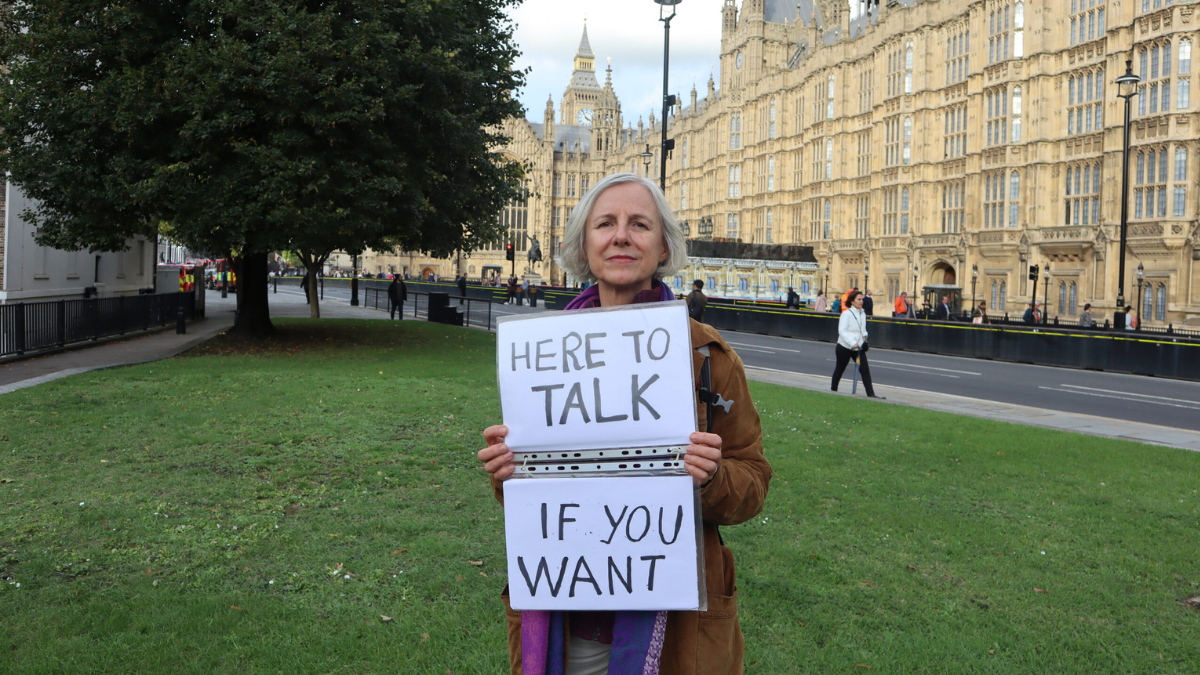Bills Aim To Stop Big Tech, Big Government From Silencing Speech
Senator Eric Schmitt, a Republican from Missouri, has highlighted concerns about alleged collusion between Big Tech companies adn the Biden management to suppress free speech, notably conservative viewpoints. In 2022, while serving as Missouri’s attorney general, Schmitt and Louisiana attorney General Jeff Landry filed a lawsuit against the federal government, arguing that it pressured social media platforms to censor opinions conflicting wiht official narratives, especially regarding COVID-19. This legal action revealed alarming communications suggesting extensive governmental involvement in stifling free expression in the United States.
The case, known as *Missouri v. Biden*, faced various challenges in the court system. While lower courts ruled in favor of the free speech advocates, the Supreme Court did not reach a resolution on the broader speech implications, leading to criticism from legal scholars who noted the ruling’s inadequate protection against government censorship.
Despite these setbacks, Schmitt viewed the litigation as an important avenue for exposing censorship practices and has reintroduced three bills aimed at holding accountable those who infringe on first Amendment rights. These proposals include the Censorship Accountability Act, which would allow individuals to sue federal employees for violating their rights, and legislation to investigate potential collusion between social media companies and government entities.
Schmitt’s efforts coincide with findings that the Biden administration allegedly coerced Big Tech to alter content moderation policies. This has led to broader discussions about speech rights and potential reforms to the legal protections enjoyed by these companies under Section 230 of the Communications Decency Act. Schmitt’s stance emphasizes not just uncovering these actions but also ensuring that similar infringements on free speech do not occur in the future.
Sen. Eric Schmitt, R-Mo., was among the first to see evidence of what many Americans suspected: Big Tech colluding with the Biden administration to silence speech. Now he’s reintroducing legislation to hold government bureaucrats and social media giants accountable for their sins of omission.
The Missouri Republican, who was attorney general of the Show Me State in 2022, joined with then-Louisiana AG Jeff Landry in suing the federal government for pushing social media companies to censor viewpoints — generally conservative viewpoints — that conflicted with the selected experts’ messaging on Covid. Missouri v. Biden, as the First Amendment lawsuit was known when filed at the time, took aim at the alphabet agencies and the social networks believed to be taking pages from Orwell’s 1984 to shut down speech.
“Before we got an injunction we got the judge to allow us to have discovery,” Schmitt told The Federalist Friday in an upcoming edition of “The Federalist Radio Hour” podcast. That big, beautiful evidence-obtaining process before trial released some frightening communications about just how far this republic’s government and tech oligarchs would go to shut down speech in the Land of the Free.
The lawsuit predated Elon Musk’s purchase of Twitter, the subsequent Twitter Files, Republicans taking back the House, the subsequent subpoenas, House hearings and public release of volumes of documents exposing the speech suppressors.
“We knew there was something there, but the level and the depth and the vast reach … We’re talking about agencies people have never heard of, agencies colluding with the biggest companies in the history of the world to suppress the voices of Americans,” Schmitt said.
‘Perils of the Court’s Doctrines’
The speech defenders, led by Schmitt’s successor, Attorney General Andrew Bailey, won victories at the federal district and circuit court levels but hit a procedural roadblock at the Supreme Court in a ruling that Columbia Law School professor Philip Hamburger described as “probably the worst free speech decision in history.” In a column for The Federalist following the June ruling in what became Murthy v. Missouri, Hamburger wrote, “the Supreme Court hammered home the distressing conclusion that, under the court’s doctrines, the First Amendment is, for all practical purposes, unenforceable against large-scale government censorship.”
Hamburger’s civil rights firm, the New Civil Liberties Alliance, represented plaintiffs in the lawsuit against the government. He had warned that “Supreme Court doctrine has permitted and thereby invited the federal government to orchestrate massive censorship through social media websites.”
“The Murthy case, unfortunately, confirms the perils of the court’s doctrines,” the attorney wrote.
Justice Amy Coney Barrett, the great defender of government rights, wrote the majority opinion that effectively punted on the speech threat question, remanding the case to the lower court for lack of standing.
In a breathtaking rejection of the damage done by a jawboning consortium of bad actors, Barrett dismissed the chilling effect the government’s actions have had on primary constitutional rights.
“First, they argue they suffer ‘continuing, present adverse effects’ from their past restrictions, as they must now self-censor on social media,” the justice wrote wrote. “But the plaintiffs ‘cannot manufacture standing merely by inflicting harm on themselves based on their fears of hypothetical future harm that is not certainly impending.”
‘Expose It and Then Stop It’
Schmitt said the ruling does not negate the good that the lawsuits have done, including exposing the social media and government officials who trampled all over the Bill of Rights in the name of public safety — or naked power. The censorship complaint compelled, among others, Dr. Anthony Fauci, the disgraced former director of the National Institute of Allergy and Infectious Diseases to sit for a deposition. Schmitt said it was interesting hearing the nation’s top Covid cop, the “respected scientist” who demanded his fellow Americans “follow the science,” say, “I don’t recall” 174 times during the deposition.
“The importance of the lawsuit was two-fold: Expose it and then stop it,” the senator said of the censorship battle.
Now that the culprits have been exposed, Schmitt said he wants to make sure they can never do what they’ve done again. To that end, he recently reintroduced three bills that he says are designed to protect victims and hold speech suppressors accountable. With a Republican majority in both house of congress, he’s feeling a lot better about the legislation’s chances.
‘An Army of Citizens’
The Censorship Accountability Act creates a right to sue federal employees who violate “rights secured by the First Amendment.” The legislation is modeled on the core enforcement tool of civil rights law — Section 1983 of Title 42 of U.S. Code.
“It shouldn’t be up to one attorney general or two to bring this kind of action and expose it,” Schmitt said. “I think we empower an army of citizens to hold their government accountable.”
The Transparency in Bureaucratic Communications Act requires inspectors general of federal agencies to investigate and report on “potential collusion between social media companies.”
And the Collude Act does away with Big Tech’s cherished Section 230 protections that “modify or suppress legitimate political speech at the direction of a government entity.” Section 230 of the long-standing telecommunications law has protected tech Goliaths from liability based on content (expression) on their sites for the better part of 30 years. The idea was to keep the burgeoning information superhighway free, open to ideas and expression of all kinds.
Last year, the Supreme Court ruled in favor of Google, Twitter, and Facebook in lawsuits that aimed to hold the social media companies liable for fostering ISIS-led attacks in Paris via the terrorist organization’s use of the platforms. The ruling didn’t get into calls to diminish or eliminate Section 230 protections.
“What’s changed now is you’ve got to pick. Either you’re going to be a publisher or you’re going to be a platform,” Schmitt said. “You can’t edit this stuff to fit the political whims of the point of view you want to have.”
Big Tech, their highly-paid attorneys, and a good number of free-market advocates disagree, arguing Section 230 doesn’t demand an either/or, and that Congress would first have to change the law before social media providers could be held legally accountable on allegations of stifling speech.
“Countless companies, scholars, content creators and civil society organizations who joined with us in this case will be reassured by this result,” Halimah DeLaine Prado, Google general counsel, said in a statement following the ruling. She promised that the tech giant would continue its work “to safeguard free expression online, combat harmful content, and support businesses and creators who benefit from the internet.”
Safeguard free expression?
‘Work with Big Tech’
Google, Facebook, Amazon, and others censored books, videos, posts, and other online content, according to the House Judiciary Committee report titled, “The Censorship-Industrial Complex: How Top Biden White House Officials Coerced Big Tech to Censor Americans, True Information, and Critics of the Biden Administration.” The report asserts that the Biden administration coerced Big Tech companies to change content moderation policies in response to criticism from the White House.
Documents obtained through the lawsuits and investigations indicate Big Tech didn’t seem so coerced into lending a helping hand. The seeds of willingness may be found in corporate media reporting about how then-incoming President Joe Biden would “work with Big Tech.”
“Over the last four years, some of America’s most prominent technology companies have found themselves squarely in the crosshairs of President Donald Trump. Now industry bellwethers such as Amazon, Apple and Facebook are weighing what kind of reception they can expect from President-elect Joe Biden,” CBS News reported on Nov. 11, 2020.
The story further reported:
During the transition, leaders in the tech industry have expressed both trepidation and optimism about the incoming Biden administration. Many fear Mr. Biden could expand federal oversight and use the Justice Department to pursue more antitrust litigation.
But while Mr. Biden has often criticized the industry, others take comfort in the presence of former Apple, Facebook and Google officials on his tech advisory board. A number of Amazon executives also are listed on Biden agency review teams.
‘I Think We’re Winning This Fight Now’
What a difference four years and a change elections make. Amazon’s Jeff Bezos is sending well wishes to President-elect Donald Trump, and Meta’s Mark Zuckerberg has been going on his mea culpa tour, effectively telling all who will listen, “We didn’t do it, but Biden made us do it.” Zuckerberg pledges Meta will discontinue its controversial fact-checking program and replace it with a kind of community-based system much like X’s Community Notes. And Facebook and Instagram, Mr. Zuckbucks says, will go easier on political content.
On Friday’s edition of Joe Rogan’s podcast, Zuckerberg claimed Facebook was browbeaten by Biden officials to remove content they didn’t like.
“Basically, these people from the Biden administration would call up our team and, like, scream at them and curse,” Zuckerberg told Rogan. “It just got to this point where we were like, ‘No, we’re not gonna, we’re not gonna take down things that are true. That’s ridiculous.’”
Ridiculous.
Schmitt says he wants to make sure that such ridiculous offenses never happen again. He said his legislation is a good start. The senator believes some of Zuckerberg’s sorry parade — “a PR play” — has to do with the reintroduction of the accountability bills, now in a Republican-controlled Congress that, if passed, would go to Republican President Donald Trump’s desk. Schmitt said his office will be sending Zuckerberg a letter soon to get a better handle on his intentions.
“I think we’re winning this fight now. I wouldn’t have said that a few years ago,” he said. “We’ve made the case … People believe that you should be able to speak your mind freely and the government shouldn’t be able to snap back at that.”
Sen. Eric Schmitt, R-Mo., will join us on Tuesday’s episode of “The Federalist Radio Hour.”
Matt Kittle is a senior elections correspondent for The Federalist. An award-winning investigative reporter and 30-year veteran of print, broadcast, and online journalism, Kittle previously served as the executive director of Empower Wisconsin.
" Conservative News Daily does not always share or support the views and opinions expressed here; they are just those of the writer."





Now loading...